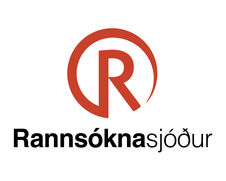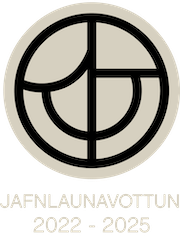Hermi- og brjóstvitstrjáleit í alhliða leikjaspilun og öðrum flóknum ákvörðunartökuvandamálum - verkefni lokið
Fréttatilkynning verkefnisstjóra
Tækni byggð á gervigreind er að finna í síauknum mæli í hugbúnaði og tækjum sem þurfa að taka mikilvægar ákvarðanir í rauntíma. Brjóstvitsleit er ein af grundvallar lausnaraðferðum gervigreindar við að leysa slík ákvörðunartökuvandamál. Á undanförnum árum hefur ný gerð brjóstvitsleitaraðferða verið að ryðja sér til rúms, sem leggja aukna áherslu á hermileit. Í þessu verkefni voru slíkar hermiaðferðir við leit rannsakaðar og endurbættar með vélnámsaðferðum, og gæði þeirra metin í alhliðaleikjaspilun og öðrum flóknum ákvörðunarvandamálum, þ.m.t. í vandamálum tengdum orkugeiranum og fiskvinnslu.
Helstu niðurstöður verkefnisins hafa verið kynntar í alþjóðlegum ritrýndum tímaritum og ráðstefnum, auk þess sem nokkrar meistararitgerðir hafa verið unnar innan vébanda verkefnisins. Að verkefninu komu, auk verkefnisstjóra, nýdoktorar og nemar í doktors- og meistaranámi við tölvunarfræðideild Háskólans í Reykjavík, svo og samstarfsaðilar við háskóla í Hollandi, Kanada, og Bretlandi.
Birtingar:
• Stefan Freyr Gudmundsson and Yngvi Björnsson. Sufficiency-Based Selection Strategy for MCTS. In Proceedings of the 23rd International Joint Conference on Artificial Intelligence, Beijing, China, August 3-9, 2013, pp. 559–565, IJCAI, 2013.
• Yngvi Björnsson and Stephan Schiffel. Comparison of GDL
Reasoners. In IJCAI'13
Workshop on General Intelligence in Game Playing Agents
(GIGA'13), pp. 55–62, 2013.
• Mandy J. W. Tak, Mark H. M. Winands, and Yngvi Björnsson. Decaying Simulation Strategies. In IJCAI'13 Workshop on General Intelligence in Game Playing Agents (GIGA'13), pp. 23–30, 2013.
• Stephan Schiffel and Yngvi Björnsson. Efficiency of GDL Reasoners. IEEE Transactions on Computational Intelligence and AI in Games. pp. 343 – 354, 2014.
• Mandy J. W. Tak, Mark H. M. Winands, and Yngvi Björnsson. Decaying Simulation Strategies. IEEE Transactions on Computational Intelligence and AI in Games, pp. 395 – 406, 2014.
• Hilmar Finnsson and Yngvi Björnsson. Modeling of Long-Term Hydrothermal Systems Operations using MDPs. Technical Report, 2014.
• Kári Halldórsson and Yngvi Björnsson. Automated Decomposition of Game Maps. In Proceedings of the 11th Artificial Intelligence and Interactive Digital Entertainment Conference, Palo Alto, CA, USA, pp. 122–127, AIIDE, 2015.
• Peter Gregory, Henrique Coli Schumann, Yngvi Björnsson and Stephan Schiffel. The GRL System: Learning Board Game Rules with Piece-Move Interactions. CGW/GIGA@IJCAI, Communications in Computer and Information Science, Vol. 614, pp. 130-148, Springer, 2015.
• Kári Halldórsson. Using map Decomposition to Improve Pathfinding. MSc thesis, School of Computer Science, Reykjavik University, February, 2016.
• Yngvi Björnsson and Stephan Schiffel. General Game Playing. Handbook of Digital Games and Entertainment, Springer, pp. 23–45, 2017
• Guðmundur Már Einarsson. Automatic Quality Measurements of Fish Fillets using Convolutional Neural Networks. MSc thesis, School of Computer Science, Reykjavik University, June, 2018.
• Frímann Kjerúlf. Evaluating Transfer Learning on Non-local Features in Deep Neural Networks. MSc thesis, School of Computer Science, Reykjavik University, June, 2019.
• Guðmundur Páll Kjartansson. Learning of Search Control in Computer Chess. MSc thesis, School of Computer Science, Reykjavik University. [Í vinnslu]
English:
The use of software and devices that use artificial intelligence to take (critical) decisions in real-time decision is on the rise. Heuristic search is one of the fundamental problem-solving techniques in artificial intelligence and computer science for informed real-time decision making. It has traditionally been based on look-a-head search using heuristics to guide the search, but in recent years a new paradigm for heuristic search has emerged, a so-called simulation-based search. In this project the frontiers of simulation-based search techniques were further advanced by the use of machine-learning techniques, and its effectiveness demonstrated in general game-playing systems as well as other complex problem domains, including in the energy and the fishing sectors. The scientific results of the project were reported in numerous international peer-reviewed journal and conference publications, as well as in several master theses done under the auspices of the project. In addition to the principal investigator, post-docs and graduate students at the School of Computer Science at Reykjavik University worked on the project in collaboration with colleagues at universities in The Netherlands, Canada, and UK.
Publications:
• Stefan Freyr Gudmundsson and Yngvi Björnsson. Sufficiency-Based Selection Strategy for MCTS. In Proceedings of the 23rd International Joint Conference on Artificial Intelligence, Beijing, China, August 3-9, 2013, pp. 559–565, IJCAI, 2013.
• Yngvi Björnsson and Stephan Schiffel. Comparison of GDL Reasoners. In IJCAI'13 Workshop on General Intelligence in Game Playing Agents (GIGA'13), pp. 55–62, 2013.
• Mandy J. W. Tak, Mark H. M. Winands, and Yngvi Björnsson. Decaying Simulation Strategies. In IJCAI'13 Workshop on General Intelligence in Game Playing Agents (GIGA'13), pp. 23–30, 2013.
• Stephan Schiffel and Yngvi Björnsson. Efficiency of GDL Reasoners. IEEE Transactions on Computational Intelligence and AI in Games. pp. 343 – 354, 2014.
• Mandy J. W. Tak, Mark H. M. Winands, and Yngvi Björnsson. Decaying Simulation Strategies. IEEE Transactions on Computational Intelligence and AI in Games, pp. 395 – 406, 2014.
• Hilmar Finnsson and Yngvi Björnsson. Modeling of Long-Term Hydrothermal Systems Operations using MDPs. Technical Report, 2014.
• Kári Halldórsson and Yngvi Björnsson. Automated Decomposition of Game Maps. In Proceedings of the 11th Artificial Intelligence and Interactive Digital Entertainment Conference, Palo Alto, CA, USA, pp. 122–127, AIIDE, 2015.
• Peter Gregory, Henrique Coli Schumann, Yngvi Björnsson and Stephan Schiffel. The GRL System: Learning Board Game Rules with Piece-Move Interactions. CGW/GIGA@IJCAI, Communications in Computer and Information Science, Vol. 614, pp. 130-148, Springer, 2015.
• Kári Halldórsson. Using map Decomposition to Improve Pathfinding. MSc thesis, School of Computer Science, Reykjavik University, February, 2016.
• Yngvi Björnsson and Stephan Schiffel. General Game Playing. Handbook of Digital Games and Entertainment, Springer, pp. 23–45, 2017
• Guðmundur Már Einarsson. Automatic Quality Measurements of Fish Fillets using Convolutional Neural Networks. MSc thesis, School of Computer Science, Reykjavik University, June, 2018.
• Frímann Kjerúlf. Evaluating Transfer Learning on Non-local Features in Deep Neural Networks. MSc thesis, School of Computer Science, Reykjavik University, June, 2019.
• Guðmundur Páll Kjartansson. Learning of Search Control in Computer Chess. MSc thesis, School of Computer Science, Reykjavik University. [In preparation]
Heiti verkefnis: Hermi- og brjóstvitstrjáleit í alhliða
leikjaspilun og öðrum flóknum ákvörðunartökuvandamálum/ Simulation- and Heuristic-Based Search
in General Game Playing and Beyond
Verkefnisstjóri: Yngvi Björnsson,
Háskólanum í Reykjavík
Tegund styrks: Verkefnisstyrkur
Styrktímabil: 2013-2015
Fjárhæð styrks: 20 millj. kr. alls
Tilvísunarnúmer Rannís: 130680


